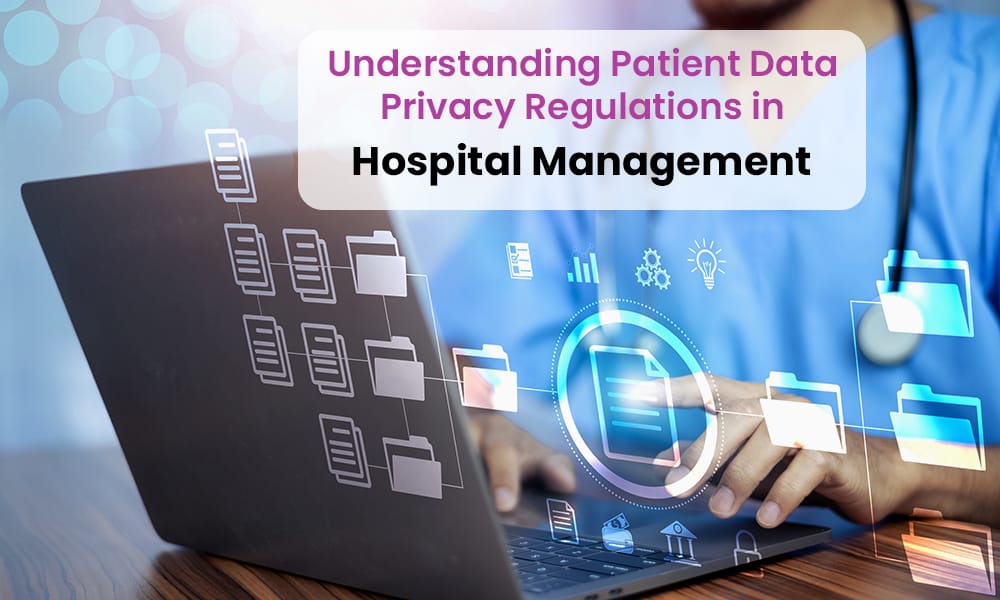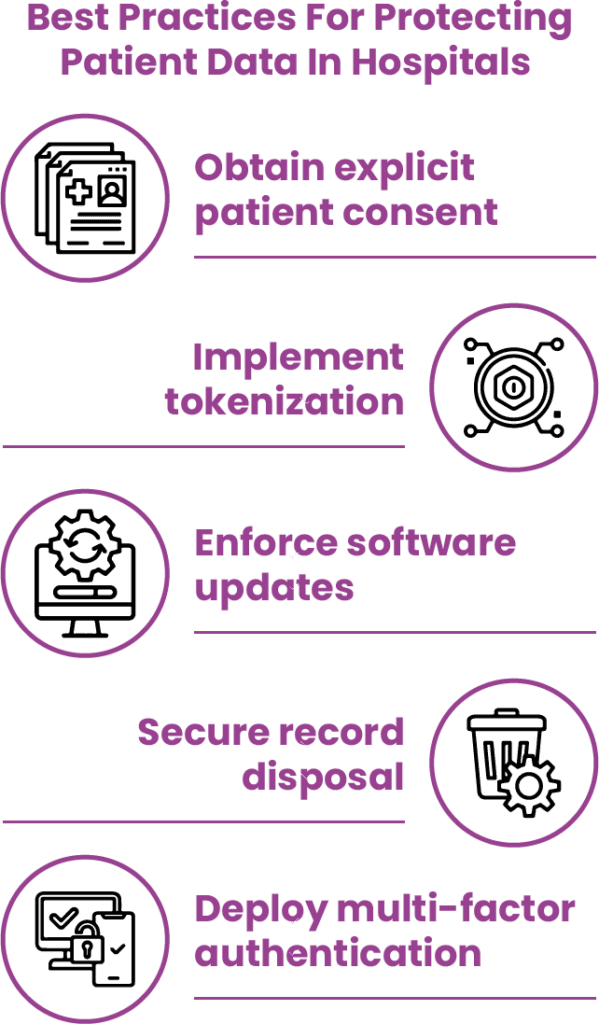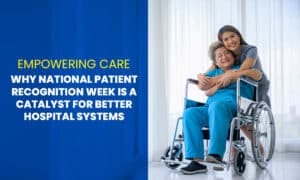
Every hospital collects and processes vast volumes of sensitive information, so patient data privacy in Hospitals form the backbone of every policy. Healthcare teams must treat patient data privacy as a non-negotiable priority because cybercriminals target medical records from diagnoses to billing details. Hospital leaders must master hospital data regulations and embed healthcare data compliance into daily operations to sustain patient trust and avoid legal penalties.
What Are Patient Data Privacy Regulations in Healthcare?
Hospital administrators often ask, what are patient data privacy regulations in healthcare? Federal and international laws require hospitals to secure Protected Health Information (PHI) at every step. The U.S. enforces HIPAA, which demands administrative, technical, and physical safeguards. The EU upholds GDPR, which requires explicit consent, data minimisation, and transparency. Both rules exemplify patient data privacy regulations in hospital management that teams must integrate into policies.
Why Patient Data Privacy in Hospitals Matters Most?
Every day, hospital staff handle lab results, prescriptions, insurance records, and financial data. If a team fails to secure those records, they breach hospital data regulations, triggering fines, lawsuits, and irreparable damage to reputation. Hospital executives must drive healthcare data compliance through risk assessments, staff training, and secure IT systems. Prioritising patient data privacy protects patients and maintains operational continuity.
Hands-On HIPAA Compliance Checklist
Leaders gain confidence by following a clear HIPAA checklist. This list stems from Understanding HIPAA rules for hospital administrators and delivers practical steps that teams can implement today:
• Conduct regular risk assessments. Teams scan networks and workflows for vulnerabilities.
• Restrict PHI access. Role-based controls let only authorised users view patient records.
• Run ongoing staff training. Educate nurses, doctors, and administrators in safe data handling.
• Use encrypted systems. Encrypt data at rest and in transit on every device.
• Maintain audit trails. Log each access event and review logs weekly.
• Report incidents immediately. Implement clear breach-notification protocols.
These actions reflect Patient Data Privacy Regulations in Hospital Management and keep teams aligned with key standards.
Best Practices for Real-World Protection

Teams can boost security beyond regulations by adopting proven best practices. Every hospital that aims to excel at healthcare data compliance should:
• Obtain explicit patient consent. Modern consent-management tools guide patients through data-use agreements.
• Implement tokenization. Tokenize sensitive fields to render them useless if attackers strike.
• Enforce software updates. IT teams patch systems immediately to close security gaps.
• Secure record disposal. Shred physical files and overwrite digital records permanently.
• Deploy multi-factor authentication. Require MFA on all hospital applications.
Each measure helps answer the critical question, how hospitals ensure patient data privacy across departments and shifts.
HIPAA vs GDPR: A Comparative Overview for Global Hospitals
If your hospital or healthcare organisation serves international patients, it’s essential to understand how HIPAA and GDPR differ:
| S.No | Criteria | HIPAA (U.S.) | GDPR (EU) |
| 1 | Scope | Only healthcare entities | All sectors handling personal data |
| 2 | Consent | Implied in treatment | Explicit for all data use |
| 3 | Right to Erasure | Not guaranteed | Fundamental right (Right to be forgotten) |
| 4 | Fines | Up to $1.5 million | Up to €20 million or 4% of global turnover |
Understanding GDPR vs HIPAA in hospital data privacy is crucial for globally operating healthcare providers. The table provides a comparison between HIPAA (Health Insurance Portability and Accountability Act) in the U.S. and GDPR (General Data Protection Regulation) in the EU, focusing on key criteria relevant to hospitals and healthcare organisations managing patient data.
- Scope: HIPAA applies specifically to healthcare entities like hospitals and clinics, whereas GDPR covers all sectors dealing with personal data, including healthcare. This makes GDPR broader in its application.
- Consent: Under HIPAA, consent for using patient data is typically implied as part of medical treatment, while GDPR mandates explicit consent for all data processing activities, ensuring individuals have clear knowledge of how their data will be used.
- Right to Erasure: HIPAA does not guarantee the right to erase patient data, while GDPR gives individuals the fundamental “right to be forgotten,” allowing them to request data deletion in certain circumstances.
- Fines: Non-compliance under HIPAA can result in fines of up to $1.5 million, whereas GDPR imposes much steeper penalties, with fines reaching up to €20 million or 4% of global turnover, emphasising the severity of non-compliance.
Overcoming Common Data-Privacy Challenges
Hospitals face recurring obstacles to robust privacy, but proactive teams overcome them:
• Outdated systems refuse modern encryption or audit-trail features. IT leaders must migrate to cloud-based hospital data management platforms.
• Human errors like misaddressed emails can leak PHI. Regular phishing simulations and mandatory data-handling drills eliminate careless mistakes.
• Staff turnover dilutes knowledge over time. Create on-boarding modules that embed Patient Data Privacy Regulations in Hospital Management into new-hire training.
These fixes transform potential breaches into opportunities to reinforce Hospital data regulations.
Leveraging Technology for Ironclad Security
Modern hospitals now deploy advanced tools that tighten every security layer:
- AI-driven monitoring spots abnormal access patterns in real time and triggers alerts.
- Blockchain-based logs provide immutable records of every data exchange.
- Next-gen EHR systems enforce granular access controls and track every user action.
- Cloud-native security platforms push updates instantly and centralise compliance dashboards.
These innovations ensure that every day, teams strengthen patient data privacy and fortify healthcare data compliance across the enterprise.
Conclusion
Every hospital must weave Patient Data Privacy Regulations in Hospital Management into its culture, policies, and technologies. Leaders who master Hospital data regulations, champion healthcare data compliance, and train teams on Understanding HIPAA rules for hospital administrators hold the key to protecting patient trust. When stakeholders ask, how hospitals ensure patient data privacy, they will point to rigorous risk assessments, airtight IT systems, and a relentless focus on best practices. This commitment delivers real-world security and fosters lasting confidence in modern healthcare.





